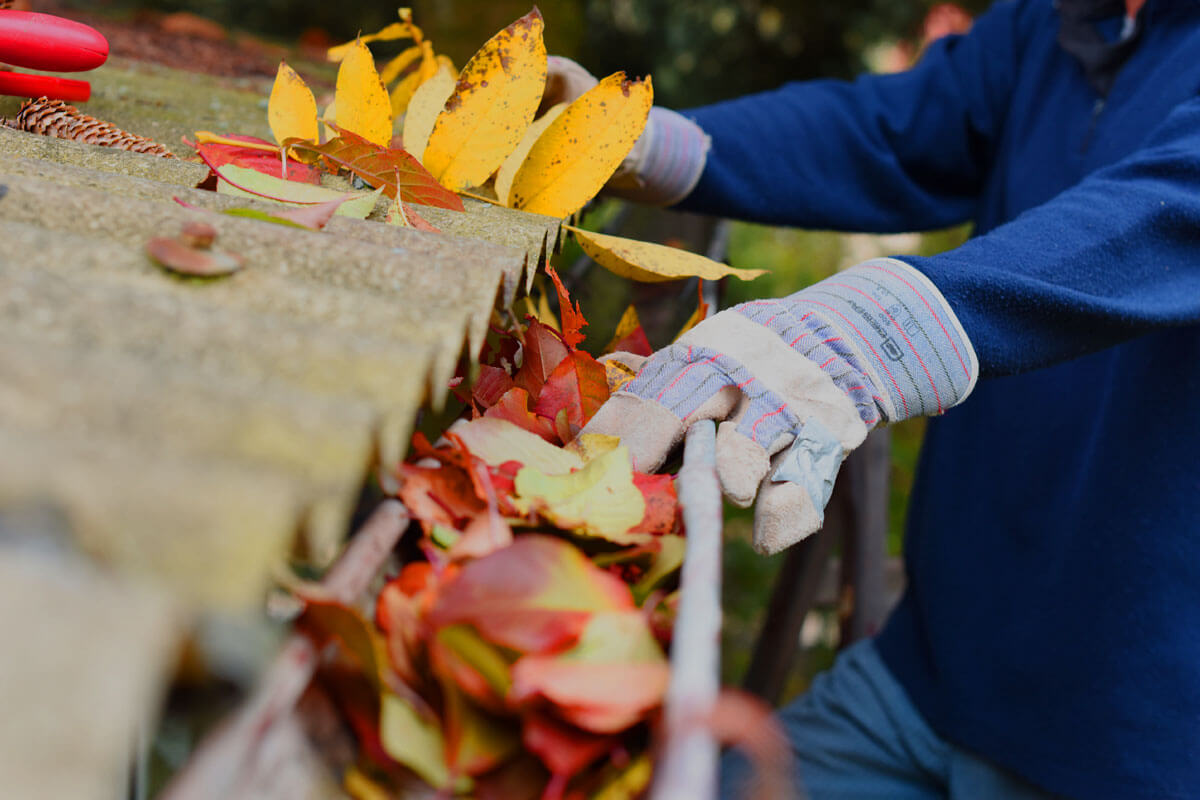Spring brings warmer weather and the perfect opportunity to prepare your home for the year ahead. A well-executed spring home maintenance checklist saves money, prevents costly repairs, and boosts curb appeal. Start with essential tasks like HVAC tune-up, gutter cleaning, and pest inspection to protect your investment and keep your family safe. These home maintenance tips for spring will help you tackle both indoor and outdoor projects efficiently.
- Home Maintenance Tips for Spring: Start with the Basics
- Interior Systems and Appliances to Check This Spring
- Exterior Maintenance and Structural Checks for Safety and Efficiency
- Prevent Pests, Moisture, and Structural Damage in Spring
- Smart Upgrades and Energy-Saving Enhancements for Spring Readiness
- Outdoor Spaces and Deck and Patio Care
- Planning Your Spring Tune-Up Schedule
Home Maintenance Tips for Spring: Start with the Basics
Begin your spring home maintenance checklist with a simple walk-around inspection of your property. “It’s good to do a walk-around of your property, especially after a storm,” says Curtis S. Niles, Sr., owner of Armored Home Inspections and president of the National Association of Home Inspectors (NAHI). Look for obvious damage from winter weather before diving into detailed routine spring maintenance.
Focus on timing your seasonal property upkeep properly. Having your gutters and downspouts cleaned and fixed after the last frost is crucial. Start early spring tasks when temperatures consistently stay above freezing, but wait for late spring to tackle outdoor painting or major exterior work. Create a schedule that prioritizes safety-critical items first, then moves to efficiency improvements and cosmetic updates as part of your comprehensive property management strategy.
Safety should guide every decision in your vernal home servicing. Use proper protective gear when working on ladders, and never attempt roof work yourself. In the interest of safety, use binoculars to inspect your roof from the ground. When in doubt, hire professionals for electrical, roofing, or structural work to avoid the consequences of home neglect.
Interior Systems and Appliances to Check This Spring
Your home’s internal systems work hardest during temperature extremes, making spring the ideal time for preventive measures and tune-ups as part of your overall home maintenance regimen.
HVAC, Plumbing, and Water Heater Upkeep
Spring is an ideal time for an HVAC tuneup, since you can prepare for the demands of summer. Construction materials are projected to increase by 5–7% this year, pushing up the cost of repairs and upgrades. Schedule your HVAC tune-up early to avoid the rush and secure better rates before costs rise further. Replace air filters every 1-3 months to boost efficiency and improve air quality through proper filter replacement.
Check your plumbing thoroughly as part of your springtime house care. Spring is a good time to check for leaky faucets, clogged drains, and sweaty pipes. Check under the kitchen and bathroom sink to make sure connections on pipes and hoses are properly sealed. Inspect washing machine hoses for cracks and ensure your dryer vent is clear of lint buildup. A clogged vent can reduce your dryer’s efficiency and create a fire hazard.
Test your water heater by checking for leaks, unusual noises, or temperature inconsistencies. Flush the tank to remove sediment buildup that reduces efficiency. Consider upgrading to a smart water heater that can detect leaks and optimize heating schedules as part of your cost-effective maintenance approach.
Smoke, Carbon Monoxide, and Fire Safety Basics
Test all smoke detectors and carbon monoxide alarms as essential spring tasks. Replace batteries even if they seem functional. Check fire extinguisher pressure gauges and ensure escape routes remain clear. Spring is the perfect time to check all your home’s safety systems.
Review your family’s emergency plan and update contact information. Inspect electrical outlets for damage and ensure GFCI outlets work properly in bathrooms and kitchens. Consider installing smart smoke detectors that send alerts to your phone and provide early warnings as part of your proactive home stewardship.
Exterior Maintenance and Structural Checks for Safety and Efficiency
Winter weather takes a toll on your home’s exterior. Winter weather can be tough on your home. Spring is your opportunity to reset and get everything back in working order. Start at the top and work your way down for systematic coverage, preventing property deterioration.
Conduct a thorough roof inspection for damaged, missing, or loose shingles. If need be, hire a handyman to repair a few shingles ($100 to $300 for asphalt shingles, according to homeguide.com). If the damaged section is more extensive, you’ll need a roofer (who will typically charge $400 to $1,000 to replace a 10-by-10-square-foot area). Look for signs of moisture damage around chimneys, vents, and flashing.
Gutter cleaning generally costs $100 to $250 for a 2,000-square-foot home (with about 180 linear feet of gutter). Clean gutters and downspouts for proper drainage and clear any debris. Ensure downspouts direct water at least five feet away from your foundation. Consider installing gutter guards to reduce future maintenance needs as part of your dwelling stewardship.
Examine your home’s siding for cracks, peeling paint, or signs of wear. Repaint or repair to protect against moisture and pests. Check windows and doors for proper seal windows and doors function. If the gap around a door or window is wider than a nickel, you need to reapply exterior caulk.
Inspect your foundation for cracks or signs of water penetration as part of your time-sensitive repairs. “Cracks start from the bottom up, not the top down,” Niles points out. “If there’s water penetration, it’ll show at the bottom of those cracks.” Address small foundation cracks immediately with epoxy injections to prevent expansion.
Prevent Pests, Moisture, and Structural Damage in Spring
Spring marks the beginning of pest activity and increased moisture concerns. Take proactive steps as part of your preventive property care to protect your home from these common problems.
Spring is the season of growth and rejuvenation; unfortunately, it also marks the start of termite swarming season. Termite removal can cost anywhere from $70 to $1,700, according to Angi.com. Inspect exposed wood in basements and crawl spaces for signs of termite damage. “If you see even a quarter-inch or so of tunneling on the wood,” says Niles, “call a pest control company immediately.”
Check for moisture buildup in basements and crawl spaces as part of your pre-summer dwelling preparation. Look for moisture in the basement and crawl space. Leaks in these spaces could turn into costly repairs. Install dehumidifiers if needed and ensure proper ventilation. Clear vegetation away from your home’s foundation to improve airflow and reduce pest-friendly environments.
Seal entry points around pipes, cables, and vents. Check door and window screens for tears that allow insects inside. Clean and inspect window screens for damage. A little work now will keep unwanted pests outside your home. Trim bushes and trees away from your house to eliminate pest highways and reduce moisture prevention issues.
Test your sump pump before heavy spring rains arrive as part of your seasonal care program. Make sure your sump pump is in working order. Clear storm drains and ensure proper drainage around your property to prevent flooding and foundation damage.
Smart Upgrades and Energy-Saving Enhancements for Spring Readiness
Homeowners spent $472 billion on home renovations in the third quarter of 2024, and projections indicate these expenditures will increase by $5 billion by the third quarter of 2025. Spring 2025 offers exciting opportunities to upgrade your home with energy-efficient upgrades that provide long-term savings through climate-responsive upkeep.
Install a smart thermostat if you haven’t already as part of your homeowner responsibilities. Remotely controlling the temperature in your home via your smartphone can reduce your energy consumption and save you up to $50 (roughly 8% of your heating and cooling bills) annually, according to ENERGY STAR. Devices like Ecobee or Nest Thermostats adapt to your habits to optimize heating and cooling.
Consider smart irrigation systems for your lawn and garden. By integrating smart home systems with renewable energy sources like solar panels, homeowners can now track their energy production and usage in real time, slashing waste and cutting costs. Smart sprinkler controllers adjust watering schedules based on weather forecasts and soil moisture levels, representing micro-seasonal adjustments that optimize resource use.
Upgrade to LED lighting throughout your home as part of your spring home upkeep. Replace traditional bulbs with energy-saving LEDs. Options like GE Cync offer both energy efficiency and ambiance customization. Install motion-activated lights for outdoor areas and low-traffic spaces to eliminate unnecessary energy use.
Smart leak detectors provide early warning of water damage and can automatically shut off your water supply. These devices connect to your smartphone and send instant alerts when moisture is detected. Consider smart water heaters that optimize heating schedules and detect potential problems before they become costly repairs.
Weatherproof your attic and basement with proper insulation and air-sealing techniques as part of your property value preservation efforts. Seal Your Attic and Basement Weatherproof these spaces with insulation and air-sealing techniques to maintain indoor temperatures year-round. This seasonal upkeep can save $150-$500 annually on heating and cooling costs.
Outdoor Spaces and Deck and Patio Care
Prepare your outdoor living areas for spring and summer enjoyment as part of your spring cleaning tradition. Power wash surfaces and check for loose boards or damage. Refresh with sealant to extend their life. Inspect deck and patio care needs including loose railings, protruding nails, or signs of wood rot.
Prepare Garden Beds: Clear weeds, add mulch, and plant spring flowers. Test your sprinkler system for proper coverage and repair any damaged sprinkler heads or leaky connections. “If you’re just paying for your system to be brought back on for spring along with basic maintenance, I would expect to pay under $100 for a smaller, simpler system, and up to $200 for a more complex system with lots of zones.”
Clean and service outdoor equipment before the busy season begins. Gas grill owners should inspect burner jets for clogs or obstructions and ensure that gas hoses and connections are secure. Check lawn mower blades, string trimmers, and other tools for proper operation and safety.
Planning Your Spring Tune-Up Schedule
Create a realistic timeline for your maintenance tasks as part of your seasonal maintenance customs. Start with safety-critical items like HVAC maintenance, electrical checks, and structural inspections. Homeowners can expect to see up to a 30% reduction in energy bills from properly maintained and upgraded systems.
Budget for both DIY checks and professional services. Think of maintenance costs like this: spend £500 on regular upkeep each year, or risk sudden repairs costing £5,000 or more. Book contractors well in advance to secure availability and potentially lock in lower rates. Invest in preventive maintenance now to avoid expensive emergency repairs later.
Consider bundling related tasks for efficiency. Clean windows when washing exterior siding, test all safety devices on the same day, and schedule professional services during slower periods for better rates and availability. Buy materials early in the year to avoid potential mid-year price hikes.
Spring maintenance isn’t just about preventing problems—it’s about creating a comfortable, efficient, and safe home environment through home servicing. By following this comprehensive checklist and incorporating smart home technologies, you’ll protect your investment while reducing long-term costs. Start with the most critical safety items, then tackle efficiency improvements and comfort upgrades. Your future self will thank you for the proactive care you provide this spring.
Remember that some tasks require professional expertise. Never hesitate to call qualified contractors for electrical, roofing, or structural work. Although improving slightly, the shortage of skilled tradespeople like electricians and plumbers continues to drive up labor costs. The small cost of professional service far outweighs the risk of injury or property damage from improper DIY attempts.





